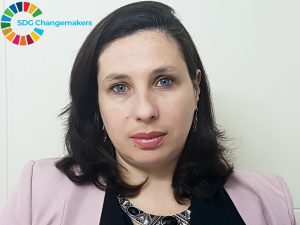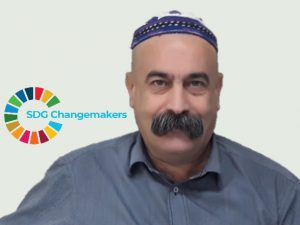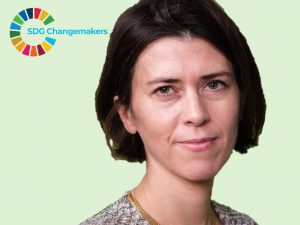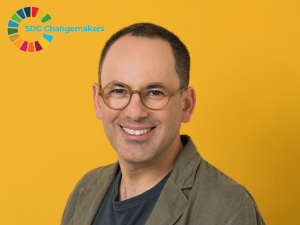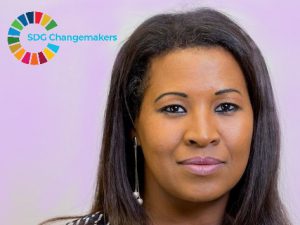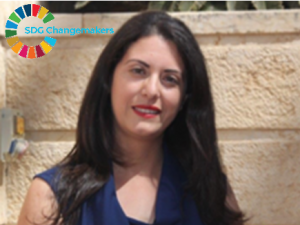Head of the Diversity in Employment Administration, Ministry of Labor, 2018-2023
SII: Please briefly describe your work
YE: As a unit, we lead the effort for better integration of target groups in the labor market. Our target population includes diverse groups: minorities, ultra-Orthodox Jews, people with disabilities, social services clients, Israelis of Ethiopian origin, young adults over 45, single parents and women. In effect, we are responsible for all sectors of the population that are at a distance from entry into the mainstream of Israel’s job market. To this end we promote government activity, enforce labor laws, develop and manage programs, policies and regulations; we also create unique vocational education & training programs. In order to achieve our goals, we are focused on very precise modus operandi: identifying and analyzing gaps and barriers; developing creative and innovative programs; policies and regulations; implementing programs and supervising their execution.
SII: Name three principle values that you associate with your work?
YE: Social mobility, pluralism and empowerment; as we move forward, the quality of employment will become an increasingly relevant issue to tackle. The composition of our future job market is already one of the most significant challenges facing Israel today. The numbers speak for themselves: the ultra-Orthodox Jewish community continues to grow, even as the demographics for other parts of Israel’s Jewish community – as well as the Arab population – will remain more or less constant. The status of women in the job market is another issue that requires attention; until not too long ago Israeli society dealt less with gender as an employment identity issue from the policy perspective, that’s now changing. About 47% of those employed are women, and they are challenged both by wage and participation gaps. These gaps speak for themselves and require us to find ways to best advance their employment integration, including the question of where.
SII: What particularly motivates you to make a difference ?
YE: Perhaps my most prominent motive is the future of my children; as a parent, I try to build a better future for our children. I believe that by improving the social mobility and integration of the different groups in Israel’s society, we will build a better future for all of them – a healthier, and wealthier, society. I understand the challenges, having started from the bottom; I grew up in a Negev development town public housing unit after immigrating with my family from the then-Soviet Union when I was 11 years old, later on had to go it alone in a boarding high school for scholastic excellence in Jerusalem.
SII: What positive impact do you see emerging through your activity?
YE: Many things. We can already see positive impact both pertaining to the Arab population and women in the ultra-Orthodox communities. While there is certainly room for continued improvement, it is undeniable that we are now seeing the fruits of processes set in motion a decade ago to encourage entry of minorities into the work force. Such efforts include the implementation of holistic programs and the channeling of significant resources. There’s a clear rise in the employment rates and salaries of minorities, that comes with a fall at poverty rates. Concerning ultra-Orthodox women: not only has their job market participation reached that of other Israeli Jewish women, they are moving from the their traditional employment field of teaching to acquiring technological training. In fact, ultra-Orthodox women are excelling in our technological training programs. Of course, none of this should come as a surprise; we work hard and maintain a robust presence on the ground including 22 career centers for the Arab community, 12 career centers for the ultra-Orthodox community, as well as career centers for the Ethiopian community and people with disabilities. I feel optimistic about the future when I see the positive developments emerging from all these efforts.
SII: Where are you headed in the future?
YE: To an influential public position, working for society; I love the public sector. I already understood while serving as deputy head of the National Economic Council that the challenge is creating a government system that thinks strategically: how do you build, within the government, long-term strategic planning capabilities. It’s about operating outside the comfort zone; governments are much more at ease dealing with the price of yogurt than with more amorphic issues, such as the long-term cost of not preparing for population aging.
SII: What else would you like to share?
YE: I would like to thank my employees. I think that I have a great position: it’s an opportunity to make big social change, side by side with the best partners one could ask for.
SII: How did Coronavirus fight impacted you?
YE: Our goal is to ensure better integration into the labor market of all sectors of the Israeli population that are at a distance from entry into the mainstream of that market. So clearly, the coronavirus crisis has definitely complicated our activities; our target populations were regrettably the first to be pushed out of the work force, and unfortunately will probably be the last to reintegrate.
A portion of our target population’s lack of digital access, which exists for a variety of reasons, emerged as a critical obstacle during the crisis; to be honest, this is now one of the most vital issues. We worked hard to make sure more participants shift to our digital platforms and we are seeing positive change.
I personally believe that the crisis also presents us with an opportunity to upgrade our activities in assisting these groups: accelerating on-line activities, pooling resources, adapting training, expediting digital use and more. I’m optimistic
More about Yulia Eitan:
Between 2012-2016 she served as Deputy Head of the National Economic Council in the Prime Minister’s Office. During her tenure, Eitan played a leading policy role in areas such as older-generation employment, encouragement of engineering studies, and closing social gaps in the Arab community (including consideration of differential education budgets).
Eitan has also served as CEO of the biotech startup KAHR Medical and held positions at the National Insurance Institute, Ministry of Absorption and the Jewish Agency for Israel.
She received her MBA (finance & marketing) from The Hebrew University of Jerusalem in 2009, and her B.A. in economics, international relations and public policy from The Hebrew University of Jerusalem in 2005.


